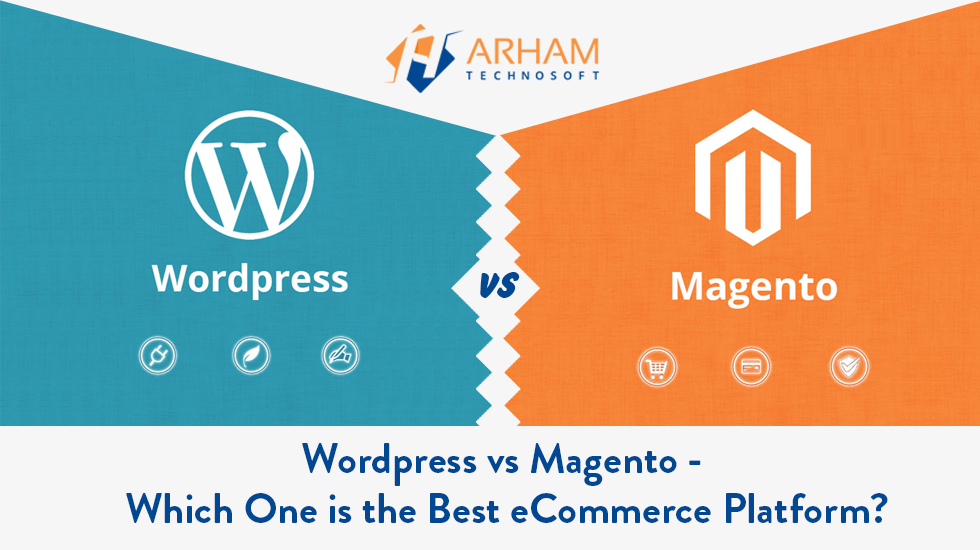When it comes to the conversations of the upsides and downsides of WordPress vs Magento, you should know the fact both are different from each other and similarly capable platforms in their features of WordPress vs Magento.
eCommerce Content Management Systems (CMS) help run your online store; however, it can be very costly. Fortunately, there are two robust open-source choices accessible for free! It implies even little stores can profit by utilizing an eCommerce CMS to deal with their store, clients, and requests.
If you are filled with enthusiasm to work on starting an eCommerce business website, at that point, you will feel exhausted or confused after some time inferable from obstacles coming up while building your online store with WordPress vs Magento.
Why you should choose WordPress Development?
WordPress Development is an incredible CMS solution for building websites. There are a few advantages of utilizing this WordPress CMS platform for creating online websites. It’s the most well known CMS by a long shot concerning utilizing base. Indeed, even websites like eBay, which owns Magento, use WordPress for their blogs.
In addition to being very user-friendly, it is additionally providing an easy-to-embed module design and layout customization.
Why you should choose Magento Development?
Magento Development is one of the most famous platforms in the world and is an open-source online business platform. Magento offers a high level of customization and functionality that contributes merchants with the flexibility to set up online stores as indicated by their business needs.
Magento also offers rich features like multi-store management, producing reports, mobile commerce, promoting search engine optimization, and other vital management tools.
WordPress vs Magento – Which One is the Best eCommerce Platform?
WordPress vs Magento Both the platforms are comparative because the website can be customised, and help the domain to accomplish a high position in the search engine results. However, WordPress vs Magento the fundamental contrast lies in the core reason. While WordPress is solely oriented towards distributing content, Magento is committed to E-Commerce.
Although there are many online platforms to build an eCommerce website, the most heard names are Magento and WordPress because of being for the most part utilised by leading eCommerce websites across the world.
It’s simple for you to incorporate many eCommerce business functionalities fit for expanding your online store development, aside from the integration of blogging features to present content pertinent to your business for its encouraging on the digital platform.
WordPress vs Magento: Comparison Between the Two
1. Ease of Use and Flexibility:
Magento certainly includes more coding applications, and that makes Magento a similarly increasingly complex platform to construct an online store than WordPress.
When it comes to flexibility, Magento has some limitations as it just supports e-commerce related applications. However, with its unique extensions, powerful features, and out-of-the-box functionalities, Magento can assist you in designing an excellent eCommerce website.
WordPress is considered as probably the most accessible platform to distribute content with the assistance of its intuitive, user-friendly feature. WordPress offers several eCommerce plugins that are effectively accessible in the market, with the help of which even beginners can create an online store.
2. Security & Development Options:
The programmatic and technical approach needs to be followed while building up a website with the help of Magento, which requires earlier information on coding and programming. However, built-in security features of Magento will protect your online business website safe from major digital threats.
Developing an eCommerce website with WordPress can be similarly easy, with the assistance of its framed widgets. Easy installation of widgets and plugins, simple alternatives to add, edit, and customise of page or post, and improved flexibility of the platform make developing an ecommerce website on WordPress a lot simpler.
3. Intension and Function:
WordPress supports simpler eCommerce functions like tracking the orders, delivery and payment option, shipping management, and so on., which can help you create a less-progressed at this point decent eCommerce website.
If you are a beginner and want to build a little digital store, WordPress can be the right choice for you. But, if you are happy to create a fundamentally large and expert online store, Magento can give you comparatively more features and functionality alternatives appropriate for the development of your online business.
The Conclusion:
Considering different factors and features of WordPress vs Magento, you ideally have made sense of its advantages and disadvantages for the development of your own eCommerce website.


